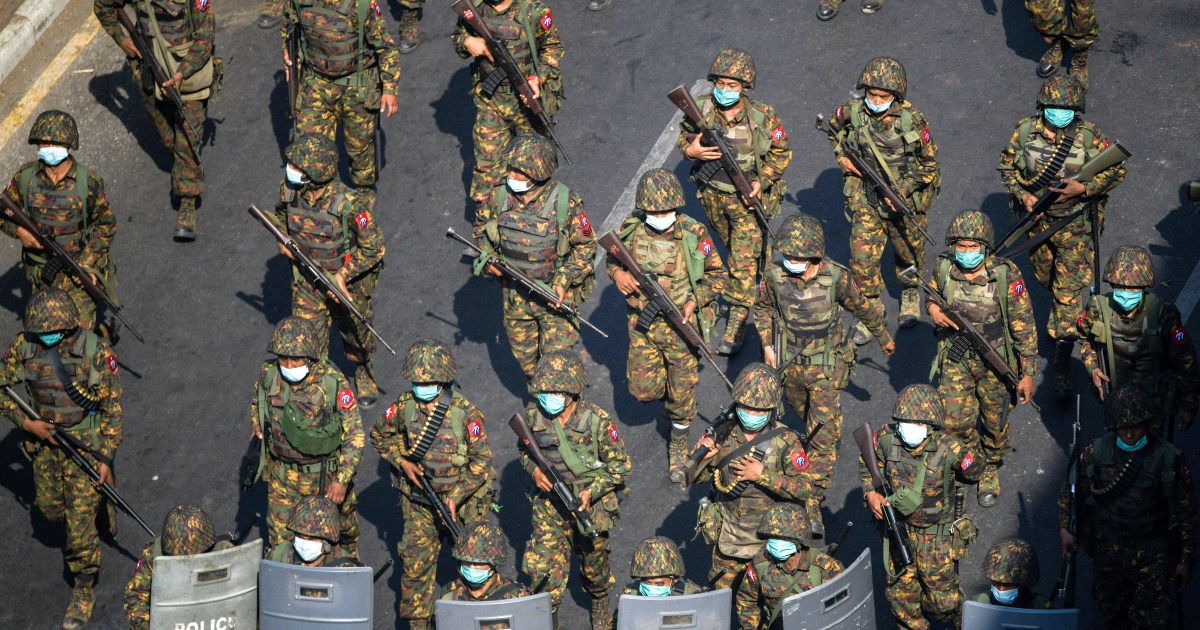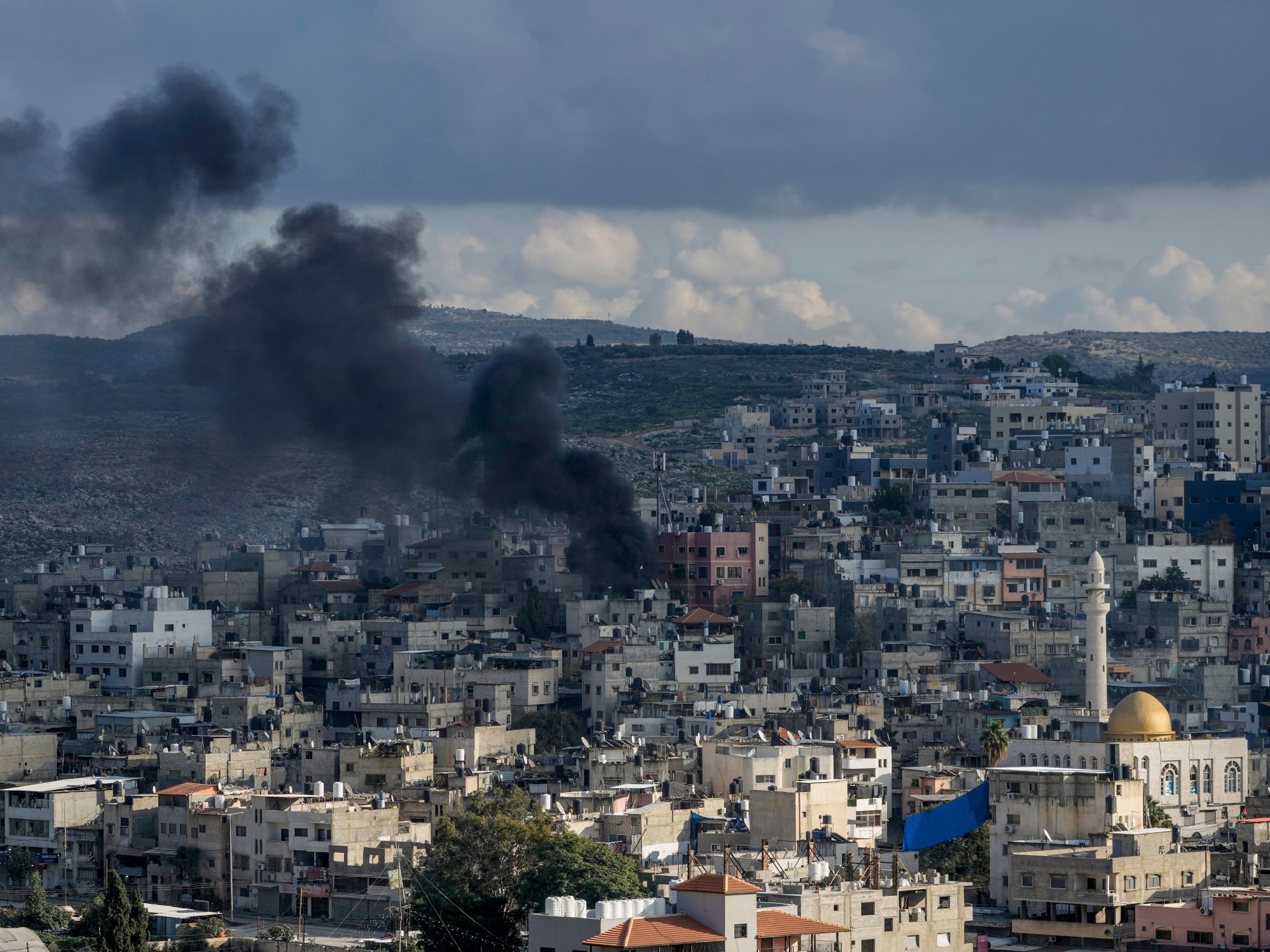Myanmar’s military says executions were ‘justice for the people’ | Military News
Myanmar’s military-led government has defended the execution of four pro-democracy activists, even as international condemnation over the killings grew.
Major General Zaw Min Tun, spokesman of the military government that seized power in a coup last year, said the executions – the first to take place in the country in decades – were lawful and not “personal”.
“This was justice for the people. These criminals were given the chance to defend themselves,” Zaw Min Tun told a news conference in the capital, Naypyidaw, adding that the government knew the executions would draw criticism.
Among those executed were democracy campaigner Kyaw Min Yu, better known as “Jimmy”, and former lawmaker and hip-hop artist Phyo Zeya Thaw, an ally of former Myanmar leader Aung San Suu Kyi, who has been in detention since the military’s power grab. The two others killed were Hla Myo Aung and Aung Thura Zaw.
All four were sentenced to death in secretive trials in January and April after being accused of involvement in violent resistance against the military since it seized power on February 1, 2021 – charges which were denied by their defenders.
State media said on Monday “the punishment” had been “conducted”, but did not specify when, or by what method, the men had been killed. Previous executions in Myanmar have been by hanging.
International condemnation mounts
The latest criticism of the executions was aired earlier on Tuesday by the United Nations’ Special Envoy on Myanmar Noeleen Heyzer and Malaysia’s Foreign Minister Saifuddin Abdullah, who denounced the killings as a “crime against humanity”.
Saifuddin told a news conference in Kuala Lumpur that the executions would be a focus of an upcoming meeting of the Association of Southeast Asian Nations (ASEAN), which begins in Cambodia in a week.
The 10-member bloc, of which Malaysia is a member, had been pushing for Myanmar to adhere to a five-point consensus (PDF) settled on in April 2021 to try and end the violence triggered by the military’s seizure of power.
But Saifuddin accused Myanmar’s rulers of “making a mockery” of the plan, which also called for dialogue among all concerned parties, provision of humanitarian assistance, the appointment of a special envoy and a visit by the latter to meet with all sides.
“We hope we have seen the last of the executions and we will try to use whatever channel that we can to try and ensure that this will not happen again,” he said, adding that Malaysia would seek to present a framework for the implementation of the peace plan at the upcoming ASEAN meeting.
Myanmar announced in June it was going to resume executing prisoners and has 113 others who have been sentenced to death, although 41 of those were convicted in absentia, according to the Assistance Association for Political Prisoners, a non-governmental organisation that tracks killings and arrests.
‘Great concern’ over potential for more executions
Al Jazeera’s Tony Cheng, who has reported extensively on Myanmar, said there was a “great concern” that further executions may take place in the near future.
“There’s been no statement [confirming this], but again there was no warning that these executions were going to take place,” Cheng said.
“In fact, the families of the four men weren’t informed beforehand either … it took everybody by surprise,” he added. “So there is a great concern that if this is the direction Myanmar’s military has turned in then there could be more [executions to come].”
Cheng also warned the killings could lead to an “even bloodier” period of resistance against Myanmar’s military rulers, noting there had been calls for “revenge” over the executions.
The military’s seizure of power from Aung San Suu Kyi’s elected government triggered peaceful protests that soon escalated to armed resistance and then to widespread fighting that some UN experts characterise as a civil war.
AAPP says 14,820 people have been arrested since the coup. During the same period, 2,120 people have been killed by military forces, according to the group.
Meanwhile, some resistance groups have engaged in assassinations, drive-by shootings and bombings in urban areas. Mainstream opposition organisations generally disavow such activities while supporting armed resistance in rural areas that are more often subject to brutal military attacks.





Pingback: rudee11
Pingback: สิว อักเสบ
Pingback: page
Pingback: chat rooms
Pingback: Red Boy Mushroom
Pingback: สล็อตออนไลน์ เว็บตรงไม่ผ่านเอเย่นต์
Pingback: lovecasino
Pingback: ที่ดินเขาใหญ่